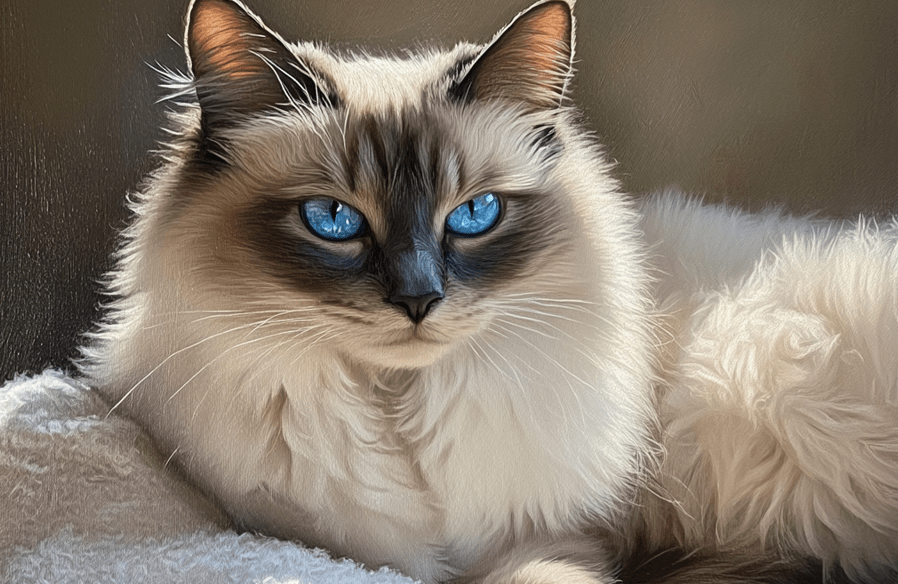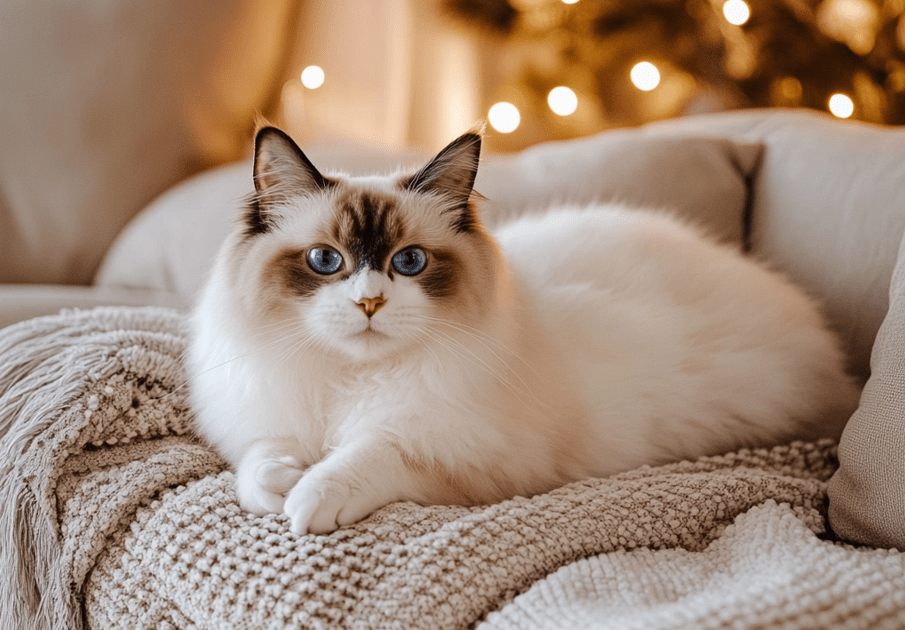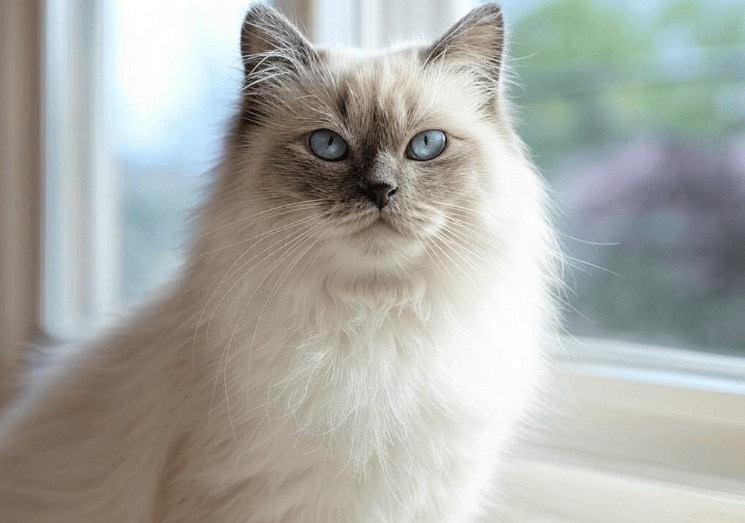
Bringing a Ragdoll kitten into your home is an exciting decision, but finding the right breeder is crucial to ensure your new companion is healthy, well-socialized, and a true representative of this beloved breed. To choose a breeder for a healthy Ragdoll kitten, you need to prioritize research, transparency, and ethical breeding practices. This comprehensive guide will walk you through every step of the process, offering insights to help you make an informed decision and find a reputable breeder who prioritizes the health and well-being of their cats.
Ragdolls are known for their docile temperament, striking blue eyes, and plush coats, making them a popular choice for cat lovers. However, their unique traits depend on responsible breeding practices. By understanding what to look for in a breeder, you can ensure your Ragdoll kitten is healthy, happy, and ready to become a cherished member of your family.
Why Choosing the Right Breeder Matters
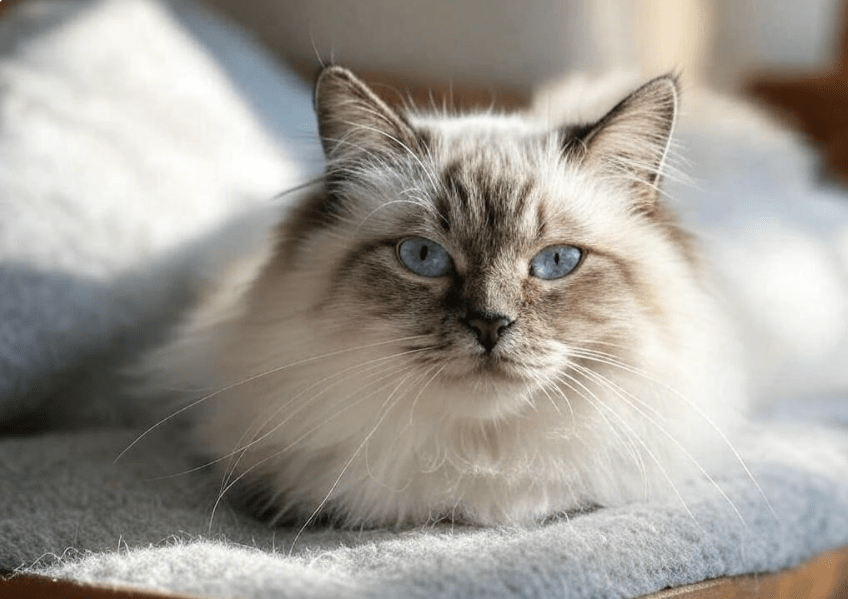
The breeder you choose directly impacts the health, temperament, and longevity of your Ragdoll kitten. Reputable breeders focus on:
Genetic Health: Screening for hereditary diseases common in Ragdolls, such as hypertrophic cardiomyopathy (HCM).
Socialization: Raising kittens in a loving, home-like environment to ensure they are well-adjusted.
Breed Standards: Maintaining the Ragdoll’s characteristic traits, including their size, coat, and temperament.
Ethical Practices: Prioritizing the well-being of their cats over profit.
A poor breeder, or worse, a kitten mill, may cut corners, leading to health issues, behavioral problems, or kittens that don’t meet breed standards. Choosing a breeder for a healthy Ragdoll kitten is about more than just finding a cute pet—it’s about ensuring a lifetime of companionship.
Step 1: Research the Ragdoll Breed
Before diving into breeder selection, familiarize yourself with the Ragdoll breed to understand what makes a healthy, high-quality kitten. Key characteristics include:
Temperament: Ragdolls are affectionate, gentle, and often described as “puppy-like” for their tendency to follow owners around.
Appearance: They have semi-long coats, blue eyes, and a sturdy, large frame. Common coat patterns include colorpoint, mitted, and bicolor.
Health Considerations: Ragdolls are prone to certain genetic conditions, such as HCM and polycystic kidney disease (PKD), which responsible breeders screen for.
Understanding these traits will help you evaluate whether a breeder’s kittens meet the breed standard and are raised with care.
Step 2: Identify Reputable Ragdoll Breeders
Finding a reputable breeder requires thorough research. Here’s how to start:
2.1. Check Breed Associations
Reputable Ragdoll breeders are often registered with recognized cat breed associations, such as:
The International Cat Association (TICA): TICA maintains a list of registered Ragdoll breeders who adhere to ethical standards.
Cat Fanciers’ Association (CFA): The CFA also lists breeders committed to breed preservation.
Ragdoll Fanciers Club International (RFCI): This breed-specific organization connects buyers with reputable breeders.
These organizations require breeders to follow strict guidelines, ensuring kittens are healthy and well-cared-for.
2.2. Search Online Responsibly
Use search engines to find breeders, but be cautious. Look for breeders with professional websites that provide detailed information about their breeding program, health testing, and kitten care. Avoid websites with vague details or those advertising multiple breeds, as they may indicate a kitten mill.
2.3. Leverage Local and Online Communities
Join Ragdoll-specific forums, social media groups, or local cat clubs to connect with other Ragdoll owners. These communities often recommend trusted breeders based on personal experiences. Platforms like Reddit or Facebook groups dedicated to Ragdolls can be valuable resources.
2.4. Attend Cat Shows
Cat shows are excellent places to meet breeders in person, see their cats, and ask questions. TICA and CFA host events where Ragdoll breeders showcase their cats, giving you a chance to assess their quality and care.
Step 3: Evaluate Breeder Credentials
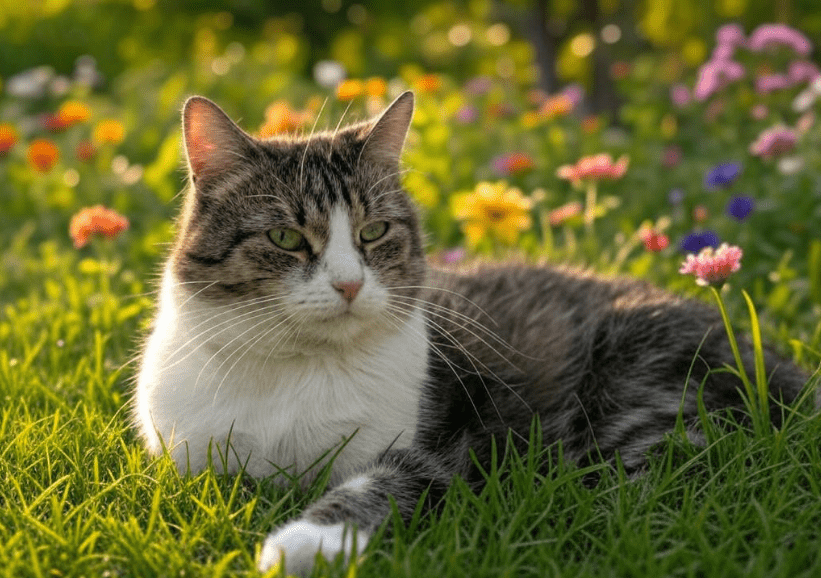
Once you’ve compiled a list of potential breeders, it’s time to vet their credentials. Here’s what to look for:
3.1. Health Testing and Genetic Screening
A responsible breeder prioritizes the health of their cats by conducting genetic tests for common Ragdoll conditions, such as:
Hypertrophic Cardiomyopathy (HCM): A heart condition that can be inherited. Ask for proof of negative HCM test results for both parents.
Polycystic Kidney Disease (PKD): Less common in Ragdolls but still a concern. Confirm that the breeder tests for PKD.
Feline Leukemia (FeLV) and Feline Immunodeficiency Virus (FIV): These infectious diseases should be ruled out.
Request documentation, such as test results from veterinary labs, to verify the breeder’s claims.
3.2.Transparency
A reputable breeder is open about their practices. They should:
-
Provide detailed information about the kitten’s parents, including pedigree, health history, and temperament.
-
Share photos or videos of the kittens’ living environment.
-
Offer a written health guarantee, typically covering genetic conditions for 1–2 years.
3.3. Breeding Practices
Ask about the breeder’s approach to breeding:
Frequency of Litters: Ethical breeders limit how often their females are bred to protect their health. A queen should not have more than 1–2 litters per year.
Kitten Socialization: Kittens should be raised in a home environment, exposed to people, noises, and other pets to ensure they are well-socialized.
Spay/Neuter Policies: Many breeders require kittens to be spayed or neutered to prevent overbreeding.
3.4. References and Reviews
Ask the breeder for references from previous buyers. Check online reviews on platforms like Google or Yelp, but be wary of overly polished testimonials that seem fabricated. Reach out to past clients to inquire about their experience.
Step 4: Visit the Breeder (In-Person or Virtually)
Visiting the breeder’s facility is a critical step in choosing a breeder for a healthy Ragdoll kitten. If an in-person visit isn’t possible, request a virtual tour via video call. Here’s what to observe:
4.1. Cleanliness and Environment
The cattery should be clean, odor-free, and spacious. Kittens and adult cats should have access to:
-
Fresh water and high-quality food
-
Safe, stimulating toys and scratching posts
-
Comfortable resting areas
4.2. Interaction with Cats
Observe how the breeder interacts with their cats. Are the cats comfortable and affectionate, or do they seem stressed or fearful? Well-cared-for Ragdolls are typically friendly and relaxed.
4.3. Kitten Behavior
Healthy Ragdoll kittens should be:
-
Playful and curious
-
Free of visible health issues (e.g., watery eyes, runny nose, or matted fur)
-
At least 12–16 weeks old before going to their new homes, as early separation can lead to behavioral issues
4.4. Questions to Ask
Prepare a list of questions to gauge the breeder’s expertise and commitment. Examples include:
-
How long have you been breeding Ragdolls?
-
Can you provide health records for the kitten’s parents?
-
What socialization techniques do you use?
-
What is your policy if the kitten develops a genetic condition?
-
Do you offer ongoing support after the kitten goes home?
A reputable breeder will welcome questions and provide thoughtful, detailed answers.
Step 5: Understand the Contract and Costs
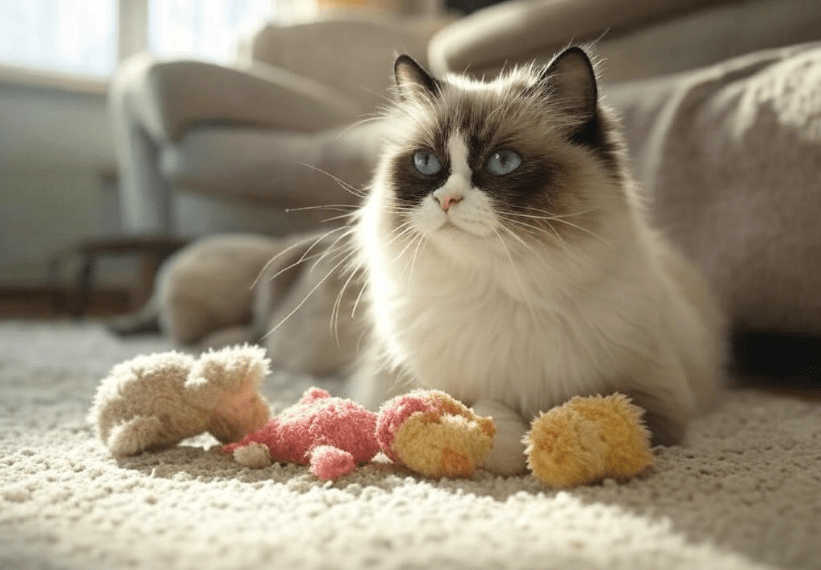
Reputable breeders provide a written contract outlining the terms of the sale. Review it carefully to ensure it includes:
Health Guarantee: Coverage for genetic conditions, typically for 1–2 years.
Spay/Neuter Agreement: A requirement to spay or neuter the kitten by a certain age.
Return Policy: A clause allowing you to return the kitten if you can’t keep it, ensuring it doesn’t end up in a shelter.
Vaccination and Deworming Records: Proof that the kitten has received age-appropriate care.
5.1. Costs of a Ragdoll Kitten
The price of a Ragdoll kitten from a reputable breeder typically ranges from $1,000 to $3,000, depending on factors like location, pedigree, and coat pattern. Be cautious of breeders offering Ragdolls at significantly lower prices, as this may indicate poor breeding practices.
5.2. What’s Included
A reputable breeder’s price often includes:
-
Initial vaccinations and deworming
-
Microchipping
-
Health certificate from a veterinarian
-
Starter kit (e.g., food samples, toys, or a blanket with the mother’s scent)
-
Registration papers (if the kitten is TICA or CFA registered)
Step 6: Avoid Red Flags
To choose a breeder for a healthy Ragdoll kitten, steer clear of breeders who exhibit these warning signs:
Lack of Transparency: Refusal to share health records or allow visits.
Multiple Breeds: Breeding several cat breeds, which may indicate a focus on profit over quality.
Young Kittens: Offering kittens younger than 12 weeks, as they need time with their mother for proper development.
No Contract: Failing to provide a written agreement or health guarantee.
Poor Conditions: Dirty facilities or unhealthy-looking cats.
If something feels off, trust your instincts and look for another breeder.
Step 7: Prepare for Your Ragdoll Kitten
Once you’ve chosen a reputable breeder, prepare your home for your new Ragdoll kitten. Here’s how:
7.1. Kitten-Proof Your Home
-
Remove hazardous items like toxic plants, small objects, and exposed wires.
-
Provide a safe space with a cozy bed, litter box, and scratching post.
7.2. Gather Supplies
Stock up on essentials, including:
-
High-quality kitten food (ask the breeder for recommendations)
-
Litter and a litter box
-
Toys for mental stimulation
-
A cat carrier for safe transport
7.3. Schedule a Vet Visit
Within a week of bringing your kitten home, schedule a veterinary checkup to confirm its health and discuss a vaccination schedule.
7.4. Build a Relationship with the Breeder
A good breeder offers ongoing support. Stay in touch for advice on feeding, grooming, or any concerns about your kitten’s health or behavior.
Step 8: Why Ragdolls Are Worth the Effort
Ragdolls are a unique breed, known for their loving nature and stunning appearance. By taking the time to choose a breeder for a healthy Ragdoll kitten, you’re investing in a companion who will bring joy for 12–18 years or more. A well-bred Ragdoll is less likely to develop health issues, has a predictable temperament, and embodies the qualities that make this breed so special.
Conclusion
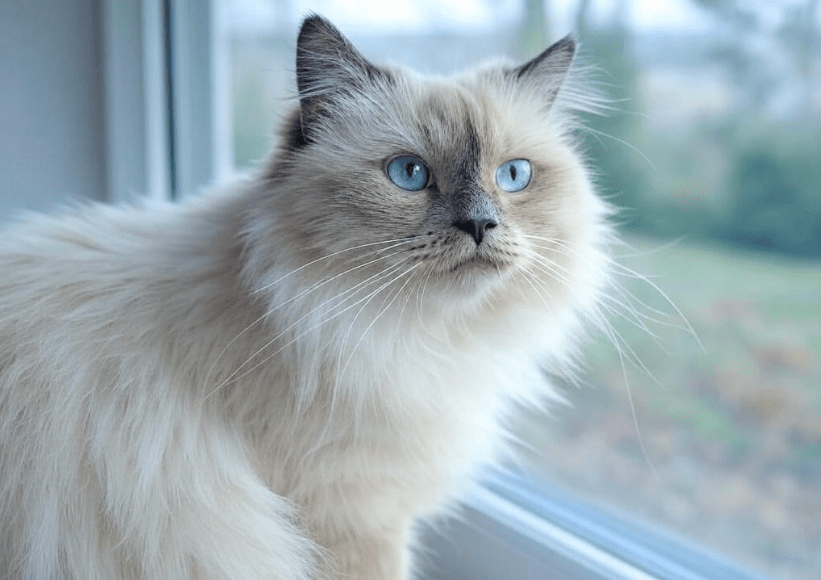
Choosing a breeder for a healthy Ragdoll kitten is a significant decision that requires time, research, and careful consideration. By prioritizing reputable breeders who focus on genetic health, socialization, and ethical practices, you can bring home a Ragdoll kitten that’s ready to thrive in your care. Use this guide to navigate the process with confidence, ensuring your new furry friend is healthy, happy, and a perfect fit for your family.
Take the first step today by researching TICA or CFA-registered breeders, joining Ragdoll communities, or attending a cat show. Your dream Ragdoll kitten is waiting!

